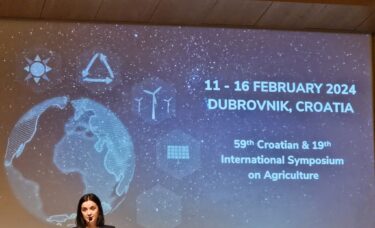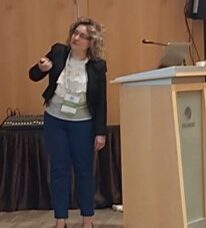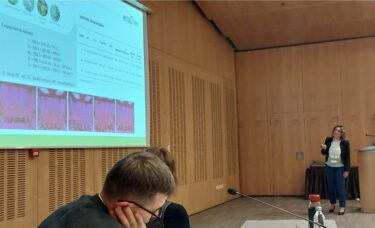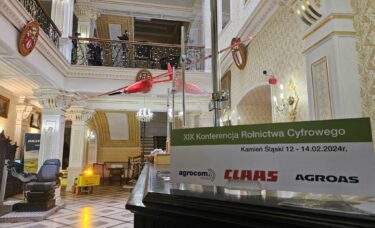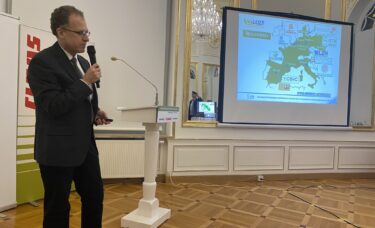
Innovative technologies – the future of agriculture
This week, IETU representatives took part in two conferences on innovative solutions. Ignoring climate change is definitely not a solution. Each farmer individually copes with the threats of drought, downpour and hail, but what can and should be done is acting from a more global perspective. New agricultural practices that reduce carbon dioxide emissions and retain it in the soil as well as innovative technologies are intended to help fight global warming.
Dr. Marta Pogrzeba, Professor of IETU participated in the 59th Croatian & 19th International Symposium on Agriculture - the event organised in Dubrovnik on the 12-16 of February 2024, the aim of which was to enable better transfer of scientific achievements, climate-friendly innovations and technologies into practice. At the Agroecology, Sustainable Agriculture and Climate Change Session, she presented the results of the MOD4GRIN project.
A self-sufficient system of intelligent modules for green urban infrastructure, consisting of a green roof, walls and vegetation at a ground level with stress-resistant native plant species, equipped with a rainwater collection system, watering system and devices monitoring temperature, humidity and dust fall, configured based on o the Internet of Things (IoT) and powered by solar energy has attracted great interest - says Dr. Marta Pogrzeba, Professor of IETU.
Equipping the green infrastructure with a network of sensors, an intelligent irrigation system and a power supply based on photovoltaics can, in a relatively short time, contribute to the optimisation of its costs, not only financial, but also material and environmental ones.
The symposium gathered over 500 participants, and in 11 sessions a wide range of issues connected with both agrotechnology and agricultural-related industries were presented, including green technologies in agriculture, invasive plants and pathogens as a threat to agriculture and biodiversity, agricultural ecology, organic agriculture, climate change or consumer strategies - adds Dr. Marta Pogrzeba, Professor of IETU.
Dr. Janusz Krupanek and Piotr Cofałka, Deputy Director for Research and Development at IETU attended the 19th Digital Agriculture Conference in Kamień Śląski (12-14 February), where scientists and practitioners of agricultural and agricultural-related industries had a chance to meet. The conference was organised by Agrocom Polska Jerzy Koronczok in cooperation with Claas Polska. The topics addressed during the conference included: intelligent plant nutrition, diversified adjustment of treatments: cultivation, fertilisation, sowing and plant protection to spatially variable soil conditions, innovative agricultural technology solutions, in that solutions based on the use of Artificial Intelligence (AI).
Dr. Janusz Krupanek, addressing the topics related to ecological trends in precision agriculture, discussed the results of the WeLASER project related to sustainable weed control in row crops using autonomous laser-based tools.
The use of a high-power moving fiber laser allows the appropriate dosage of weed-killing radiation. The laser beam is directed precisely at the apical meristems (growth cones) of weeds, the location of which is determined by an advanced system based on Artificial Intelligence and a detection camera system. The robot's intelligent environment recognition and navigation system uses: an RGB camera, methods using LIDAR, Time of Flight cameras and positioning based on a GNSS satellite navigation system – says Dr. Janusz Krupanek, Coordinator of the WELASER project at IETU.
In the nearest future agriculture will be facing some changes - both digital and regenerative, related to retaining CO2 in the soil, shaping the cultural landscape of agriculture, increasing soil fertility, and producing high-quality food without pesticides. Using a laser to remove weeds in row crops can significantly reduce or eliminate herbicides.
Farmers are becoming more and more open to digital and precision farming technologies, although it is all going rather slowly, and this is why conferences disseminating and promoting currently emerging innovative solutions are of such great importance. For the natural environment and the quality of produced food, it is particularly important to reduce the negative ecological effects of treating an agricultural field as a uniform area when using artificial fertilisers, pesticides and herbicides - adds Dr. Janusz Krupanek.
The conference once again provided arguments to confirm the thesis that in conventional and organic agriculture there are justified reasons for the implementation of digital and precision farming techniques.
More information - Youtube
-
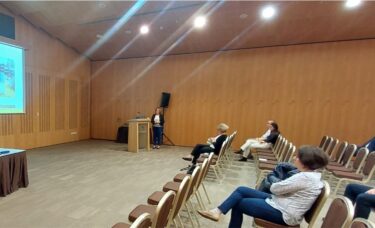
- 59th Croatian & 19th International Symposium on Agriculture, Dubrownik, Croatia 12-16.02.2024 – Mod4GrIn project
-
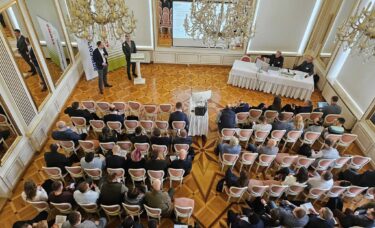
- XIX Konferencja Rolnictwa Cyfrowego w Kamieniu Śląskim, 12-14.02.2024 – Projekt WeLaser. Foto: Agrocom Polska Jerzy Koronczok i Claas Polska
-
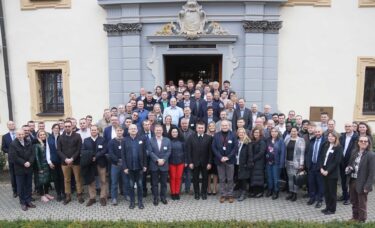
- XIX Konferencja Rolnictwa Cyfrowego w Kamieniu Śląskim, 12-14.02.2024 – Projekt WeLaser. Foto: Agrocom Polska Jerzy Koronczok i Claas Polska









